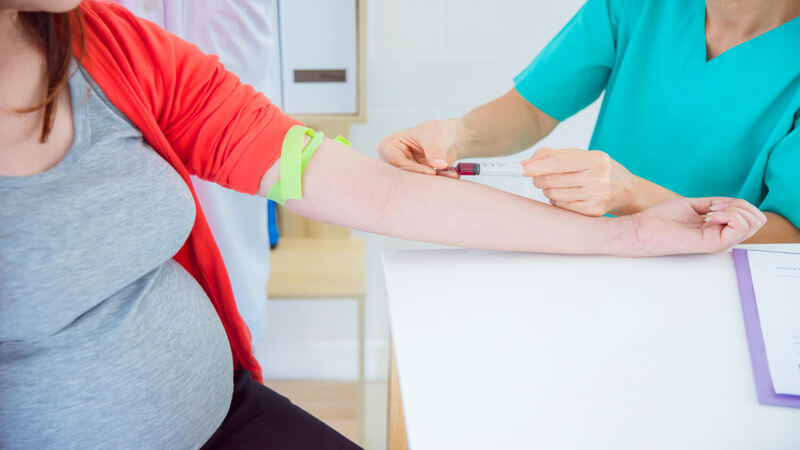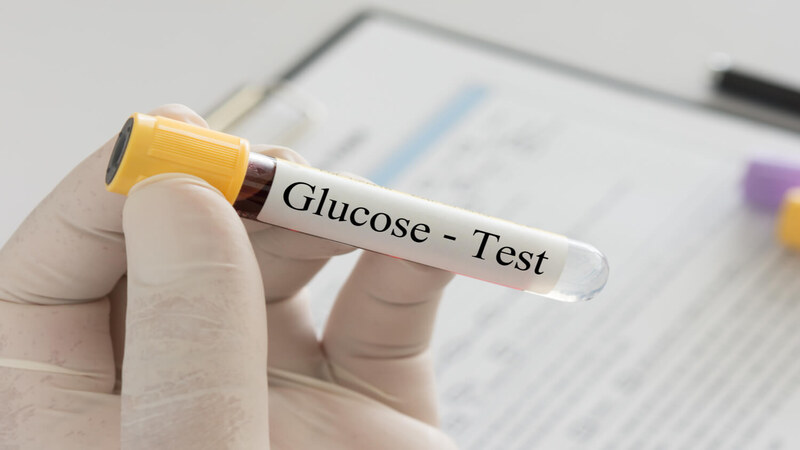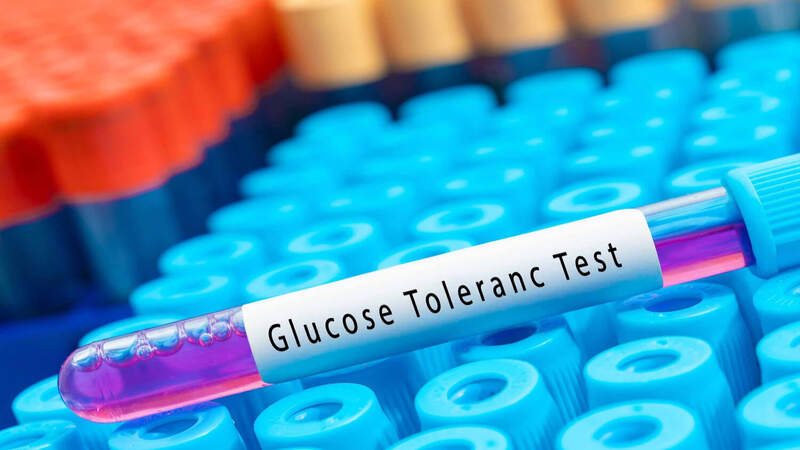
All pregnant women are screened for potential gestational diabetes during their pregnancy. Screening is done by evaluating the woman’s medical history and examining certain risk factors, including obesity and a family history of diabetes. Certain tests like glucose screening tests and glucose tolerance tests are also recommended. Read on to learn more about glucose tolerance tests during pregnancy.
Are you told about blood glucose tests for pregnant women? A glucose tolerance test when pregnant helps with gestational diabetes, a condition that affects 15%–25% of pregnant women. (1). Whatever the results of your blood sugar test, you can take steps to keep your blood sugar under control and have a healthy pregnancy.
What Is a Glucose-Screening Test?
The glucose screening test is a routine test recommended for all pregnant women. The glucose screening test is normally done during the second trimester of pregnancy between the 24th and 28th weeks. (2). The objective of this test is to screen for gestational diabetes. Gestational diabetes is a form of diabetes that appears only during pregnancy and will disappear after delivery.
It can cause several serious issues as the pregnancy progresses. If your routine prenatal urine test shows readings that are above normal readings of glucose or if you have an increased chance of gestational diabetes, the test will be performed earlier.
Who Needs To Take The Glucose Screening Test And Why?

Around fifty percent of the women who develop gestational diabetes are found to possess no known risk factors. Therefore, this test is included among the other routine tests conducted in the course of pregnancy. This test will be conducted a little earlier than usual if you:
- Have had gestational diabetes in your earlier pregnancies?
- Are obese
- Are over 35 years old
- Have a family history of diabetes
- The urine tests during the early months show an increased level of sugar
How Is the Glucose-Screening Test Performed?
As in the case of all screening tests, the glucose screening test is not a diagnostic test. The positive result only implies that you need to undertake additional tests to confirm gestational diabetes.
For the glucose screening test:
- There are no restrictions on eating or drinking prior to this test. You can go as usual for your prenatal visit and the test will be performed.
- The pregnant woman will be asked to drink a liquid that contains glucose (mostly flavored, as you may develop an aversion to non-flavored fluids during pregnancy). You have to drink this solution in five minutes.
- One has to wait for an hour after drinking the liquid. Post that your blood sample is taken and sent to the laboratory for testing sugar levels.
If the reading shows more than the normal level of sugar, a glucose-tolerant test is performed to confirm gestational diabetes.
How Are The Glucose Screening Test Results Interpreted?

A woman is considered to have normal blood sugar levels if her reading is below 140 mg/dl. (3). However, some doctors consider reading below 130 mg/dl as normal. Though several “false” positive results can appear when normal reading is considered below 130 mg/dl, in this way, the doctors can recognize more patients who have a chance to develop gestational diabetes.
If the reading is above 200 mg/dl, then the patient is considered to have gestational diabetes. In such a case, there is no need to conduct any further tests. However, if the reading is between 140 mg/dl and 200 mg/dl, the doctor orders a glucose tolerance test to confirm gestational diabetes.
What is Glucose Tolerance Test for Pregnancy?
The Glucose Tolerance Test (GTT) during pregnancy measures how effectively the body processes glucose. It’s used to screen for gestational diabetes, which can develop during pregnancy and affect both mother and baby.
If the glucose screening test results are above normal, the next step is to perform a glucose tolerance test. This test result will confirm gestational diabetes.
How Is the Glucose Tolerance Test For Pregnant Woman Performed?
Unlike a glucose screening test, you must prepare beforehand for a glucose tolerance test.
- As the first step, you should mention to your doctor if you are taking any particular medicine other than the one prescribed by your doctor. This will help the doctor to analyze the chances of that medicine influencing the result of the test. You may be required to stop the consumption of that medicine before a few days of the test as instructed by the doctor.
- You can have a normal dinner the night before the test. After that, you are not supposed to eat or drink anything other than water for 8–14 hours before the test.
- The test is scheduled first thing in the morning.
- As soon as you reach the lab, a blood sample is taken to find out the fasting blood sugar.
- A highly concentrated glucose solution will then be given as the next step of the procedure. You have to drink it in two to five minutes
- Once every hour, for the next three hours, your blood sample is collected. This way the readings of blood sugar levels after one hour, two hours, and three hours, respectively, are evaluated.
How Are The Glucose Tolerance Test Results Interpreted?

Abnormal values for the glucose tolerance test are:
- Fasting sugar: 95 mg/dl or higher
- After one hour: 180 mg/dl or higher
- Following two hours: 155 mg/dl or higher
- After three hours: 140 mg/dl or higher
If any of the above abnormal values appear in your test results and all other readings are normal, your doctor will advise you to make some dietary changes and begin some light exercise, such as walking, or to increase the duration of your current exercise. More than one abnormal value in your test result confirms gestational diabetes.
Side Effects of Glucose Tolerance Test
Glucose tolerance test pregnancy side effects are one discussed topic. Many women don’t face any kind of side effect after undertaking the glucose tolerance test. Drinking the glucose solution is like drinking a very sweet beverage. In some cases, women may feel nauseated and may even throw up after they drink the glucose solution. If they vomit soon after they have had the glucose drink down, they will have to come back some other day and repeat the test.
Severe side effects from this test are not known. However, here are a few important things that you have to keep in mind when you go for the glucose-tolerant test:
- Bring along a book to read to pass the time as you have to spend three hours in the lab.
- Take a small box of food with you, as you may be famished and want to eat as soon as you finish the test.
- Never try to drive by yourself after the test as there are chances you may feel dizzy because of the test and your energy levels will be very low after completing this test.
FAQ’s
1. Is a Glucose Tolerance Test Mandatory During Pregnancy?
Between 24 and 28 weeks of pregnancy, the majority of pregnant women get a glucose screening test. If you have a high glucose level in your urine during your usual prenatal appointments, or if you are at high risk for diabetes, the test is mandatory.
2. What Is the Difference Between a Glucose Test and the Glucose Tolerance Test?
The glucose tolerance test is less complicated. The exam is offered 24/7. It necessitates the use of a concentrated glucose solution. After one hour, blood sugar is tested. Nonetheless, you should avoid eating anything before a glucose tolerance test.
Reference
- Abbas Alam Choudhury, V. Devi Rajeswari, Gestational diabetes mellitus: A metabolic and reproductive disorder, Biomedicine & Pharmacotherapy, Volume 143, 2021- https://www.sciencedirect.com/science/article/pii/S0753332221009677
- National Institute of Diabetes and Digestive and Kidney Diseases (NIDDK): Tests & Diagnosis for Gestational Diabetes – https://www.niddk.nih.gov/health-information/diabetes/overview/what-is-diabetes/gestational/tests-diagnosis
- Emily Eyth; Hajira Basit; Cathi J. Swift ; University of South Florida ; Brookdale University ; Hastings College/North Colorado Medical Center – https://www.ncbi.nlm.nih.gov/books/NBK532915/
